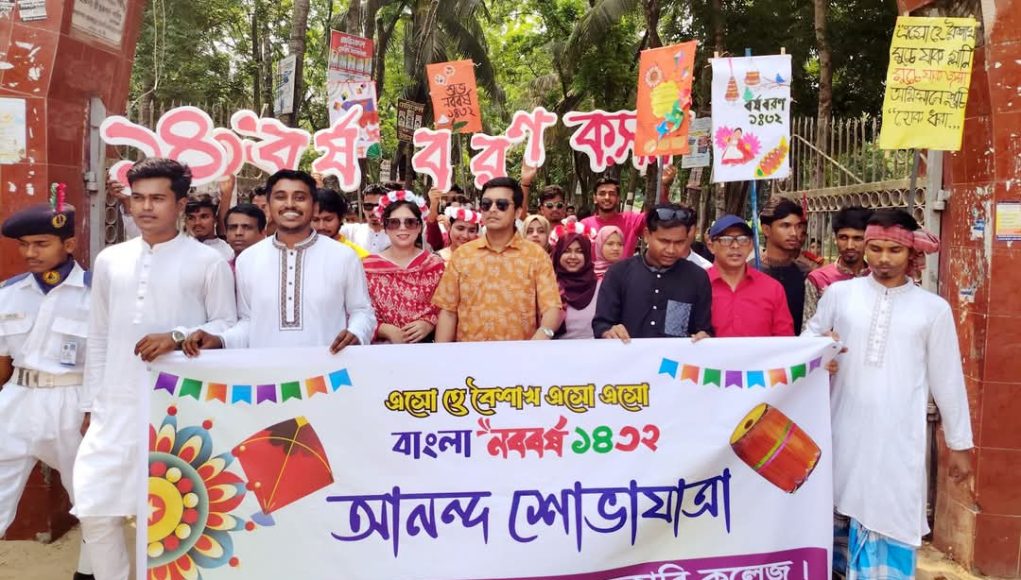Cox’s Bazar came alive with vibrant colors, cultural performances, and a massive influx of tourists as people from all walks of life celebrated Pahela Baishakh 1432 — the Bengali New Year — with immense enthusiasm and festive spirit. From poetry and music to dance, traditional fairs, and grand processions, the celebrations echoed the rich cultural tapestry of Bengal.
In households and public spaces alike, the essence of Bengali tradition was felt as people donned colorful attire and participated in age-old customs to ring in the new year. With tourists flocking to the world’s longest sea beach, the district administration organized the main Baishakhi celebration right by the shore, making the beach the heart of the festivities.
The day began with a festive rally from the beach, leading to a full schedule of cultural programs at Laboni Point. Locals and tourists — both Bangladeshi and international — joined in the merriment. Meanwhile, the Cox’s Bazar Pahela Baishakh Udjapon Parishad hosted a separate celebration, starting with a vibrant procession from the Public Library and Shaheed Daulat Maidan, featuring around 20 local organizations. Cultural performances followed on open-air stages, with stalls offering traditional dishes like panta-ilish, homemade sweets, and handicrafts.
In the upazilas, the new year was celebrated with equal vigor. In Chakaria, the Upazila Administration led a colorful rally from the Thana Center, showcasing elements of rural Bengali culture. Upazila Nirbahi Officer Md. Atikur Rahman led the procession as it paraded through the town’s streets.
The Integrated Child Rehabilitation Center of Cox’s Bazar launched a week-long program for underprivileged and at-risk children, marking the day with festivities at their premises. In Ramu, separate celebrations were held at Khizari Government High School and Ramu Government College, while in Moheshkhali, the day was marked with colorful processions, cultural discussions, folk fairs, and musical performances.
From the city to every upazila, Pohela Boishakh was embraced in full spirit—reflecting the enduring love Bengalis hold for their culture, heritage, and the joy of new beginnings.
By Abdur Rashid Manik
File Photo










